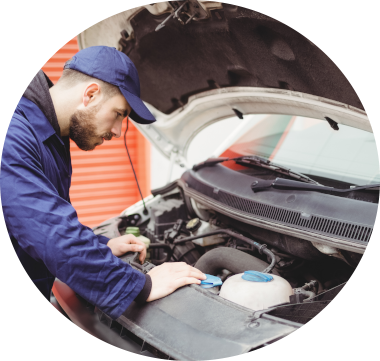All Categories
Featured
A well-maintained engine is the key to your automobile's durability and peak performance. Regular engine tune-ups not only boost fuel efficiency yet also decrease the possibility of unexpected breakdowns. Whether you're an automobile lover or somebody that merely intends to avoid expensive repair work, these engine tune-up suggestions will maintain your car running like a desire.

- Replace the Flicker Plugs. The spark plugs spark the air-fuel mixture in your engine, and their performance directly affects engine efficiency. Gradually, trigger plugs can break, resulting in misfires, reduced gas economy, and sluggish acceleration.
During a tune-up, examine and replace ignition system if they show indications of wear, such as residue accumulation, deterioration, or fractures. Relying on your lorry, ignition system might require to be replaced every 30,000 to 100,000 miles.
- Check the Ignition System. Your cars and truck's ignition system, that includes the ignition coils, representative, and cables (if appropriate), is liable for providing the stimulate that powers your engine. Damaged ignition parts can create starting problems and rough engine procedure.
Inspect for harmed or used parts and replace them throughout your tune-up. Guaranteeing a healthy ignition system will certainly improve engine reliability and performance.
- Tidy or Change the Air Filter. A clean air filter permits your engine to "take a breath" appropriately by making certain a consistent circulation of tidy air. In time, dirt and debris can obstruct the filter, decreasing air flow and influencing gas effectiveness.
Check the air filter during a tune-up and replace it if it's filthy. For chauffeurs in messy or polluted locations, air filters might need to be transformed extra frequently.
- Examine and Clean the Fuel System. The gas system, including the gas injectors, fuel pump, and fuel lines, can collect deposits in time, minimizing fuel distribution and engine efficiency. Make use of a fuel injector cleaner or have your system professionally cleansed throughout a tune-up to recover proper performance.
Routinely keeping your gas system makes certain much better burning and optimizes your engine's efficiency.

- Change the Engine Oil and Oil Filter. Engine oil is important for lubrication, air conditioning, and lowering friction between relocating parts. Over time, oil degrades and accumulates particles, losing its performance.
Throughout a tune-up, change the engine oil and oil filter. Complying with the maker's recommendations for oil type and adjustment periods is essential to keeping your engine in optimal condition.
- Inspect the Belts and Hose pipes. The belts and hose pipes in your engine area play essential roles in powering parts like the alternator, water pump, and cooling system. Use and tear over time can result in fractures, fraying, or leaks.
Inspect the problem of belts and hose pipes throughout your tune-up and change any kind of that show signs of damage. Proactively dealing with these issues can stop pricey fixings and unforeseen breakdowns.
- Evaluate the Battery and Electrical System. A weak or falling short battery can leave you stranded. During your tune-up, examination the battery's voltage, check the terminals for corrosion, and ensure the connections are tight.
In addition, have the generator and starter inspected to ensure they're functioning effectively. Resolving electric system problems early can conserve you from inconvenient surprises.
- Check the Cooling System. The cooling system avoids your engine from overheating, which can create extreme damage. Throughout a tune-up, examine the radiator, tubes, and water pump for leakages or use.
Flush and replace the coolant if it's filthy or has actually surpassed its advisable life span. Correct air conditioning system maintenance aids your engine run within its ideal temperature range.
- Address Dashboard Caution Lighting. Modern automobiles are equipped with advanced diagnostic systems that light up advising lights when issues emerge. If your control panel displays any cautioning lights, such as the check engine light, address them throughout the tune-up.
A specialist technician can use analysis tools to determine and repair the issue, avoiding little concerns from intensifying.
- Maintain Your Engine Clean. A clean engine runs cooler and is simpler to evaluate for possible problems. Eliminate dirt, oil, and crud from your engine bay during a tune-up. Make use of a degreaser and a mild brush for cleaning, and avoid splashing water straight on electric parts.
Final Thought: Tune-Ups Are the Trick to Engine Long Life. Regular engine tune-ups are an investment in your car's wellness, performance, and effectiveness. By changing used elements, cleaning up vital systems, and dealing with concerns early, you'll ensure your car remains reputable for many years to come. Whether you're tackling the tune-up on your own or taking your vehicle to a relied on mechanic, following these suggestions will maintain your engine running at its ideal and assist you avoid unforeseen fixings. A well-maintained engine does not simply save you money-- it assures satisfaction when driving.
Latest Posts
Trusted Auto Repair in Your Area - Trust Montclare’s Skilled Mechanics
How We Make Flooring Easy at Carpet Interiors Floor & Home
Built on Top Quality, Driven by Solution